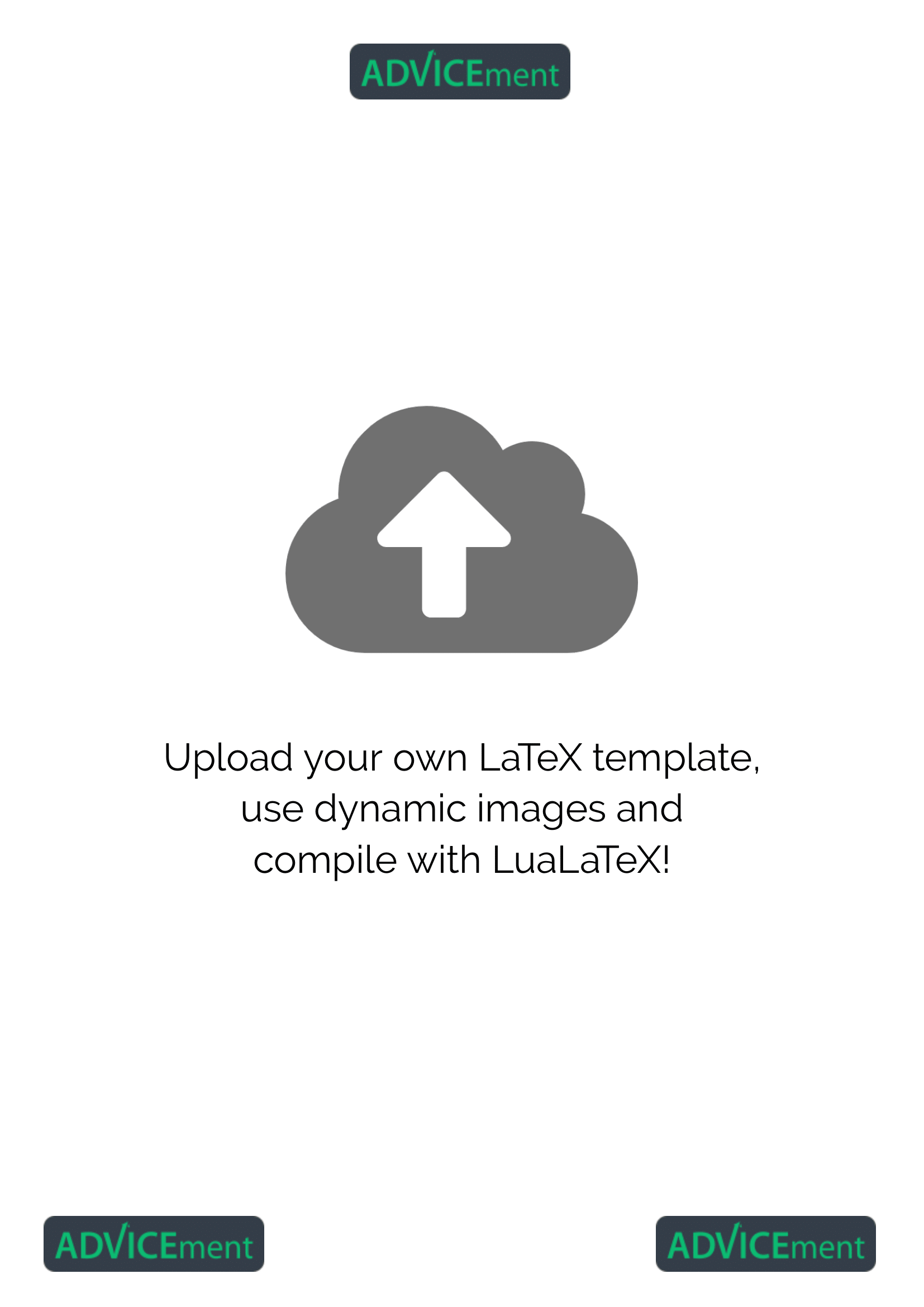Tex to PDF with LuaLaTeX v1

Information to call the Tex to PDF with LuaLaTeX v1
- API End Point:
- https://api.advicement.io/v1/templates/pub-tex-to-pdf-with-lualatex-v1/compile
- Authentication:
- Use your API Security Token (which is generated in your dashboard) in the Adv-Security-Token header parameter
Refer to our authentication guide for more information.
- Uses Luatex:
- TRUE
- Uses Charts:
- FALSE
- Available On:
Tex to PDF Template with luaLaTeX
A JSON to PDF template that compiles a tex file into a PDF document using luaLaTeX is a tool that allows users to generate PDFs from LaTeX source files. The JSON data contains the underlying source file, which is then compiled into a PDF using luaLaTeX.
Use Cases for Tex to PDF
One use case for this tool could be in academic publishing, where researchers or students need to generate PDFs of their papers or theses for submission. The source file could include details such as the author's name, title of the paper, and abstract, which would then be compiled into PDF.
Another potential use case would be in generating invoices or receipts. The JSON data could contain the source file with information such as the customer's name and address, items purchased, and total amount due.
A JSON to PDF template for compiling LaTeX source files into PDFs could also be useful for generating certificates or diplomas.
Another potential use case would be in generating reports or presentations.
A Tex to PDF template for compiling LaTeX source files into PDFs could also be useful for generating resumes or CVs. The source file can contain information such as the applicant's name, contact information, work history, and education.
Key Takeaways
Overall, a JSON to PDF template that compiles tex files into PDFs using LuaLaTeX can be a powerful tool for automating the document generation process and ensuring consistency in the formatting of the resulting PDFs. By using LaTeX, users can create professional-looking documents that are easily customizable. With the added features of LuaLaTeX, such as support for Unicode and advanced typography, the resulting PDFs can have a high-quality and polished look.
image1 - An optional string which contains base64 encoded string of your jpg or png image. Note that you can have multiple images and use alternative names, but you have to reference the image name using advGetImage{...} command in your tex file.
texFileContent - A required string which contains the content of your tex file.